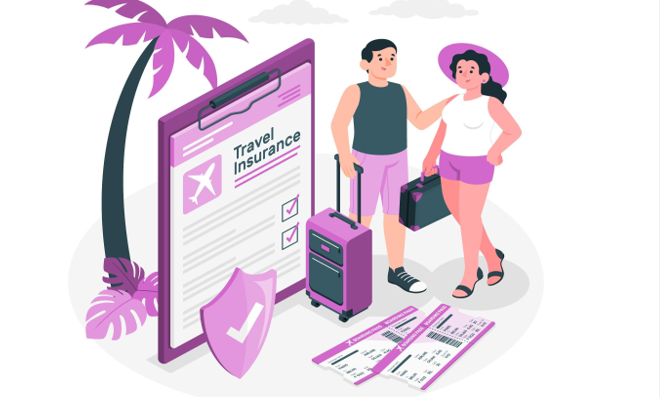Planning a trip to Europe? If your itinerary includes any of the 29 Schengen countries, having international travel insurance isn’t just a smart move but also a mandatory visa requirement.
Schengen travel insurance ensures that travellers are financially protected in case of unforeseen emergencies like medical treatment, accidents, or trip disruptions during their stay. However, with countless plans in the market, choosing the right one can be overwhelming.
This guide breaks down everything you need to know to pick the ideal international travel insurance plan for Schengen destinations. So, learn how to choose a plan that meets visa requirements while offering peace of mind throughout your journey.
Why Do You Need Travel Insurance for a Schengen Visa?
Purchasing international travel insurance is a mandatory requirement when applying for a Schengen visa from India. Without a valid insurance policy that meets the specific criteria laid out by Schengen authorities, your visa application is likely to be rejected.
This regulation applies to all travellers, whether you are visiting for tourism, business, or even transiting through a Schengen country. Beyond fulfilling visa obligations, travel insurance is essential for financial protection during your trip.
Healthcare costs across Schengen countries can be significantly high, and if you fall ill or face a medical emergency, you may be required to pay substantial hospital or treatment bills out of pocket. A suitable travel insurance policy shields you from such unexpected expenses.
These policies provide comprehensive protection against both medical emergencies and non-medical risks, including trip cancellations, loss of belongings, and travel delays.
Minimum Travel Insurance Requirements for a Schengen Visa
To obtain a Schengen visa, your travel insurance policy must meet certain mandatory criteria set by the Schengen authorities. These requirements are designed to ensure that travellers are adequately covered for emergencies during their stay in any of the Schengen countries.
Here are the minimum travel insurance requirements for a Schengen visa:
- Minimum Coverage Amount: The insurance policy must offer a minimum medical coverage of €30,000 (approximately ₹27 lakh). This coverage should be sufficient to handle medical emergencies, including sudden illnesses or injuries that may occur during your trip.
- Validity Across All Schengen Countries: The insurance must be valid in all 29 Schengen member countries, regardless of your intended travel itinerary.
- Coverage for Emergency Medical Expenses: The policy should cover costs related to hospitalisation, emergency medical treatment, and urgent care, as well as any necessary medications prescribed by a doctor.
- Emergency Evacuation and Repatriation: This coverage must include medical evacuation to your home country and the repatriation of remains in the event of death.
- Duration of Coverage: Your travel insurance must be valid for the entire duration of your stay, as mentioned in your visa application and travel itinerary.
Failure to meet these requirements can result in visa rejection, regardless of any other supporting documents. It’s advisable to carefully review your policy document to ensure compliance with these criteria before submitting your visa application.
Key Features to Look for in Schengen Travel Insurance
When selecting Schengen travel insurance, it’s important to look beyond the mandatory requirements and opt for a policy that offers comprehensive protection. Here are the essential features to look for:
- Medical Emergency Coverage: This is the key component of Schengen travel insurance. It covers expenses related to hospitalisation, doctor consultations, diagnostic tests, surgery, and prescribed medicines in the event of sudden illness or injury.
- Emergency Evacuation: If you face a serious medical emergency that requires airlifting to a better-equipped facility or return to your home country for treatment, this feature covers the cost.
- Repatriation: The insurance plan should include the repatriation of mortal remains in case of death, helping your family avoid the logistical and financial burden of handling such an unfortunate situation abroad.
- Trip Cancellation/Interruption: This feature provides reimbursement for non-refundable expenses, such as flight tickets or hotel bookings, if your trip is cancelled or interrupted mid-way due to unforeseen circumstances, including family emergencies, illness, or natural disasters.
- Loss of Passport/Luggage: If you lose your passport or checked-in baggage, travel insurance helps cover the costs of obtaining a duplicate passport and provides compensation for lost, stolen, or delayed baggage.
- Personal Liability: If you accidentally cause injury to someone or damage their property during your stay, personal liability coverage helps cover the legal expenses or compensation that may arise.
- 24/7 Assistance Services: Round-the-clock assistance is crucial when travelling abroad. Most travel policies offer 24/7 emergency support to help with finding hospitals, arranging transportation, reissuing lost documents, or solving any crisis during the trip.
- Return of Minor Child: If you are hospitalised and unable to take care of a child travelling with you, this feature covers the cost of returning your minor child to your home country under adult supervision, ensuring the child’s safety when you are incapacitated.
- Compassionate Visit: In case you are hospitalised for a prolonged period while abroad, this feature covers the travel and accommodation costs for a close family member to visit you.
Tips for Picking the Best Schengen Travel Insurance Plan
With multiple insurers offering a variety of international travel insurance plans, choosing the right one can be overwhelming. To ensure you select a policy that offers the best protection without overspending, consider the following tips:
- Compare Plans from Different Providers: Review multiple insurance options to assess coverage benefits, policy limits, exclusions, and pricing. Use comparison platforms or consult an insurance advisor to identify the most suitable plan for your travel needs.
- Check Insurer Network: Ensure the insurer has a robust international assistance network, especially in the countries you plan to visit. A well-connected insurer can coordinate medical help, hospital admissions, or repatriation more efficiently.
- Check Provider’s Claim Settlement Ratio: A high claim settlement ratio reflects the insurer’s reliability and promptness in processing claims. Always choose providers known for hassle-free and transparent claim handling, especially in emergencies.
- Read Inclusions and Exclusions Carefully: Understand what is covered and what isn’t. Common exclusions may include high-risk sports, mental health conditions, or travel against medical advice. Being informed will prevent surprises during a claim.
- Evaluate Premium vs Benefits Offered: While lower premiums may seem attractive, they could mean limited coverage. Balance affordability with comprehensive benefits. Sometimes, a slightly higher premium offers significantly better protection.
- Decide Between a Single-Trip or Multi-Trip Policy: If you travel frequently to the Schengen region, a multi-trip annual policy may be more cost-effective than purchasing a new policy for each visit. For one-time or short trips, a single-trip plan is sufficient.
- Take into account your trip’s purpose: Business, leisure, or study trips may have different insurance needs. For instance, business travellers might require coverage for laptops or meeting cancellations, while tourists may prioritise trip interruption benefits.
- Carefully Check Deductibles and Pre-Existing Condition Clauses: Review the deductible amount (i.e., the out-of-pocket cost you must bear before coverage kicks in) and confirm if pre-existing medical conditions are covered.
Choosing the right travel insurance for your Schengen trip is essential to meet visa requirements and ensure peace of mind while travelling abroad. A comprehensive plan protects you against unexpected medical emergencies, travel disruptions, and financial setbacks.
Before making a decision, compare different policies, understand the fine print, and choose coverage that aligns with your travel needs and budget. With the right Schengen travel insurance in place, you can explore Europe with confidence, knowing you are well protected against potential risks.
Final Thoughts
Travel insurance is a small investment for peace of mind during your journey. From protecting against medical emergencies and cancellations to aiding in document loss or flight delays, a good plan is essential. Customize based on who’s traveling, where, and what kind of risks you might face. Safe travels! for more travel insurance articles lets explore travellerkaka now











